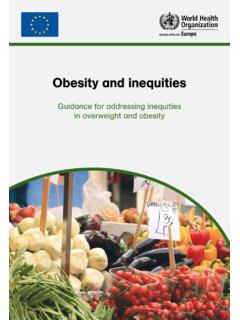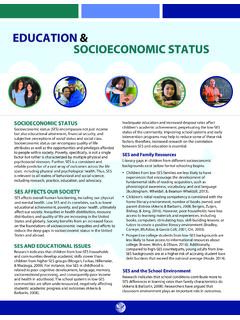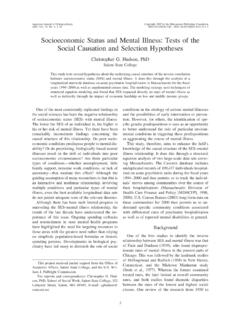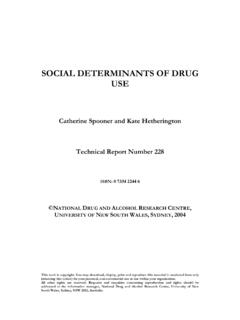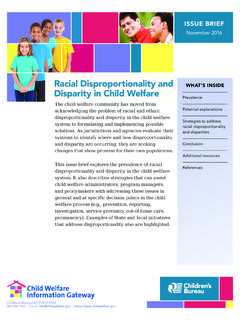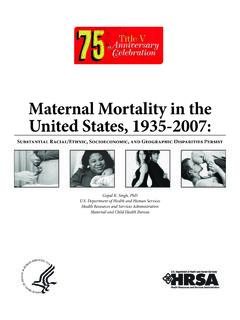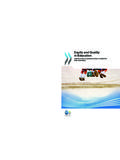Transcription of Implications of Socioeconomic Status on Academic ...
1 International Education Studies; Vol. 9, No. 4; 2016 ISSN 1913-9020 E-ISSN 1913-9039 Published by Canadian Center of Science and Education 257 Implications of Socioeconomic Status on Academic Competence: A Perspective for Teachers Luis F. Cede o1, Rosario Mart nez-Arias2 & Jos A. Bueno1 1 Facultad de Educaci n, Universidad Complutense de Madrid, Madrid, Spain 2 Facultad de Psicolog a, Universidad Complutense de Madrid, Madrid, Spain Correspondence: Luis F. Cede o, Facultad de Educaci n, Departamento de Psicolog a Evolutiva y de la Educaci n, Despacho 4208, Universidad Complutense de Madrid, Edificio La Almudena, C/Rector Royo Villanova s/n, Ciudad Universitaria 28040-Madrid, Spain.
2 Tel: 34-91-172-9819. E-mail: Received: September 16, 2015 Accepted: October 27, 2015 Online Published: March 29, 2016 URL: Abstract Studies suggest that Socioeconomic Status is a strong predictor of Academic achievement. This theoretical paper proposes that despite the fact that low- Socioeconomic Status represents a risk factor that seems to undermine attentional skills and thus Academic achievement, emerging evidence suggests the potential of new approaches, interventions and cognitive training programs to reverse the negative effects of poverty.
3 The evidence presented in this paper may be of particular interest for teachers because it provides a larger scope to better understand the Implications of Socioeconomic Status on learning and school achievement. This paper intends to make teachers aware that today more than ever they count on important knowledge and valuable resources like cognitive training intervention programs to help students. These intervention programs correct dysfunctional attention bringing hope to socially disadvantaged students who struggle in school.
4 Keywords: attention, underachievement, SES, competence, maltreatment, stress, HPA axis 1. Introduction The present study highlights the graded relationship between Socioeconomic Status (SES) and Academic achievement. Emerging evidence suggests that SES is a predictor of Academic achievement. In fact, a body of research supports the notion that problematic attention is the hallmark of lower-income students and that this deficit is strongly associated to Academic achievement (Caspi, Wright, Moffit, & Silva, 1998; Farah & Hackman, 2012; Neville et al.)
5 , 2013; Sampson, Sharkey, & Raudenbush, 2007; Stevens, Lauinger, & Neville, 2009). Poor or lower-SES environments seem to generate significant stress on individuals compromising selective attention with Implications for Academic achievement. We are afraid that such evidence may tempt some teachers and policy makers to believe that Academic underachievement among socially disadvantaged students are an irreversible and inevitable outcome. With this in mind, this paper intends to provide a different perspective by indicating that certain characteristics like personal traits and the influence of a caring adult like a teacher, provides the pillars to reverse the harmful effects of poverty.
6 Besides, the implementation of intervention and cognitive training programs are potentially beneficial, correcting cognitive features such as maladaptive information processing styles that impede school achievement (D Angiulli, Herdman et al., 2008; D Angiulli, Weinbergh et al., 2008; Lutz et al., 2009; Neville et al., 2013; Stevens & Bavelier, 2012). Consequently, we believe that teachers are in a particularly optimal position to help students with attentional problems. Teachers can refer them to cognitive training programs that enhance selective attention.
7 It is worth noting that although disorders like depression, schizophrenia, attention deficit disorder (ADD) and attention deficit hyperactivity disorder (ADHD) have been linked to attention, they should not be confused with attention dysfunction which is the central theme of this paper (Lutz et al., 2009). Our research question is the following: Can low-income students with proper support improve Academic performance? Despite the fact that this paper neither provides empirical data on the effectiveness of one particular cognitive program against another, nor the evidence discussed here is comprehensive, it does provide important insights on International Education Studies Vol.
8 9, No. 4; 2016 258 cognitive training programs that enhance attention control. This manuscript includes the following sections: Why not to blame the poor Poverty related stress: maltreatment and neglect Attention among low-income students Protective factors Interventions and brain plasticity Answer to research question 2. Why Not to Blame the Poor The world recession increased unemployment and millions became poor and struggle to meet their basic needs. Poverty is a risk factor that brings about segregation, violence, poor health, and school underachievement. Poor or low-income families are, in the first place, more likely to have partial or no health insurance coverage and therefore, tend to suffer more diseases and reduced life expectancy (Alley, Seeman, Kim, Hu, & Crimmins, 2006).
9 According to Alley et al. (2006), low-income individuals develop earlier conditions like heart disease, diabetes, cancer and psychological issues. Lack of opportunities, isolation, and community and domestic violence seem endemic in lower-SES environments, leading to dysfunctional problems (Doll & Lyon, 1998). Under these circumstances the prospects of achieving Academic success are significantly reduced (Caspi, Wright, Moffit, & Silva, 1998; Turner, Popkin, & Rawlings, 2008). Life for low-income people is particularly difficult because they experience a plethora of needs and life issues that better-off individuals do not face and do not understand.
10 In that sense, Mani, Mullainathan, Shafir, and Zhao (2013) seek to offer a different view related to unfair allegations about the poor as careless individuals, unproductive at work, that neglect health care and spend and ought too much. For Mani et al. (2013) it is clear that an individual with few resources and insufficient external support that attempts to comply with the demands of family and the demands of financial obligations, face a formidable task. Economic scarcity represents an important source of stress that limits choices and reduces the capacity to make effective decisions (Shah, Mullainathan, & Shafir, 2012).










